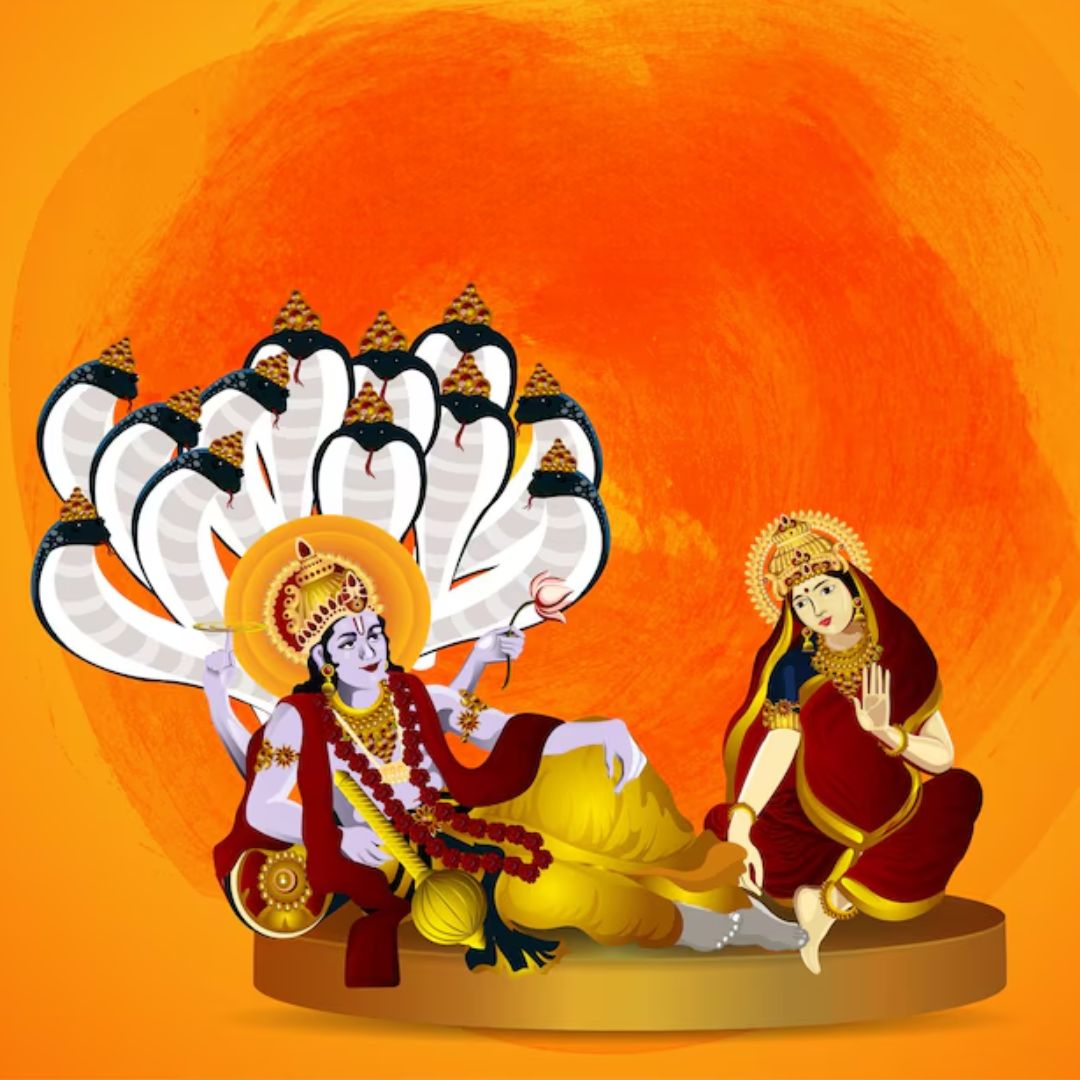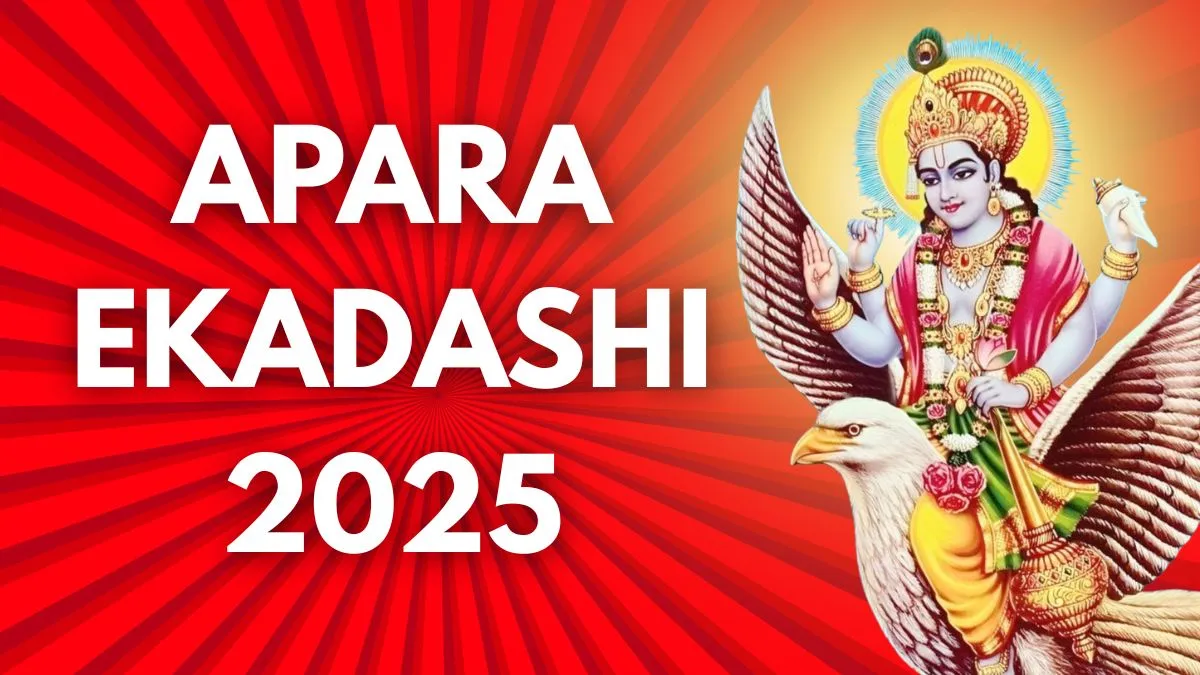- By Kashish Rai
- Thu, 22 May 2025 11:20 AM (IST)
- Source:JND
Apara Ekadashi in 2025 is a significant fasting day for Hindus. As per the Hindu Panchang, this sacred fast falls on the 11th day of Krishna Paksha in the Jyeshtha month. This sacred day is also called Achla Ekadashi and Jakakrida Ekadashi. The devotees who fast on the day of Apara Ekadashi fully abide by the faith that it will relieve them of all sins and bad karma. This fasting day is dedicated to Lord Vishnu, especially to his Trivikrama form. This year, Apara Ekadashi Vrat will be observed by devotees on 23rd May 2025.
Check out all the important details regarding the date, time, parana timings, significance, rituals and vrat katha of this sacred Ekadashi tithi below:
Apara Ekadashi 2025: Date And Time
- Apara Ekadashi 2025 Date: 23rd May 2025, Friday
- Ekadashi Tithi Begins: 01:12 AM on May 23, 2025
- Ekadashi Tithi Ends: 10:29 PM on May 23, 2025
Apara Ekadashi 2025: Parana Time
The Parana Timings for Apara Ekadashi 2025 are from 05:26 AM to 08:11 AM on 24th May 2025. The Dwadashi end moment on Parana Day is at 07:20 PM.
Apara Ekadashi 2025: Significance
The term 'Apar' in Hindi is 'limitless' and Apara Ekadashi is so named as it is said to impart boundless wealth and spiritual merit to devotees. Performing this vrat is said to yield immeasurable benefits, leading one to achieve prosperity and liberation from sin. The importance of Apara Ekadashi is amply mentioned in ancient texts such as the Brahma Purana and Padma Purana, which discuss its spiritual significance and merits obtained through true adherence.
Apara Ekadashi is celebrated with devotion under different names across India. In Punjab, Jammu & Kashmir, and Haryana, it is observed as ‘Bhadrakali Ekadashi’, where devotees worship Goddess Bhadrakali for divine blessings. In Odisha, the day is known as ‘Jalakrida Ekadashi’ and is dedicated to Lord Jagannath. Despite regional variations, the core spiritual essence remains the same – devotees fast, pray and seek divine grace for a righteous, prosperous life and liberation from past misdeeds.

As per the Hindu Panchang, the sacred fast of Apara Ekadashi falls on the Krishna Paksha Ekadashi tithi in Jeyshtha month. (Image Source: Freepik)
Apara Ekadashi 2025: Rituals
The puja of Apara Ekadashi should be done in pure devotion and before evening. People wake up early, take a morning bath before dawn, and start the ritual. Tulsi leaves, flowers, incense sticks (dhoop), and a lighted lamp are offered to Lord Vishnu. Some special sweets are also made and offered as bhog. People read or hear Apara Ekadashi vrat katha, and then do aarti and share prasad. Most also go to Lord Vishnu's temples at night to get his blessings.
Fasting starts on Dashami (10th day) for Apara Ekadashi, with a single light meal. On Ekadashi, some people have a nirjala vrat, which means that they do not take anything to eat or drink, whereas others have a phalahar fast, where they take fruits to eat. Grains and rice are not taken at all. The fasting concludes at dawn on the following day, dwadashi. Use of oil on the body is also not recommended.
The fast is not just physical but also mental. Devotees should refrain from falsehood, evil thoughts, or maligning others. Their thoughts must remain concentrated on Lord Vishnu, and bhajans, kirtans and recitation of the Vishnu Sahasranama are regarded as particularly sacred.
Apara Ekadashi 2025: Vrat Katha
The legend of Apara Ekadashi is about a righteous king called Mahidhwaj. He was benevolent and righteous, but his younger brother Vajradhwaj was wicked and jealous. Not happy with the righteousness of Mahidhwaj, Vajradhwaj murdered him and buried him under a Peepal tree in a dark forest. Due to his premature death, Mahidhwaj's soul turned into a rebellious ghost, which would haunt the place and terrorise anybody who wandered through the area.
One day, there happened to pass through the woods a wise sage who met the ghost of the king. The sage talked to the ghost, who recounted the sad story of betrayal and assassination. Touched by his story, the sage resolved to assist the soul to achieve peace. He practised the Apara Ekadashi vrat and, on the Dwadashi day, donated the spiritual merits acquired from the vrat to the roaming soul. The king's spirit was eventually released from the ghost world and achieved moksha.
Hindu legends also suggest that Lord Krishna narrated the significance of Apara Ekadashi to King Yudhishthira. This vrat is believed to remove the sins of the past and present and drive an individual to a path of virtue and positivity. This vrat is also connected with acquiring immense riches, fame and social esteem. People who carry out the rituals devotedly might also avoid the cycle of rebirth and achieve moksha.
According to some spiritual scholars, following Apara Ekadashi yields results the same as taking a dip in the Ganges in the Kartik month or donating a thousand cows. The worship of Lord Vishnu on this day is of great spiritual importance. For these spiritual blessings, however, one needs to follow the vrat and rituals sincerely and with proper understanding, since proper observance is the secret of spiritual success.
(Disclaimer: This content includes advice providing generic information only. It is in no way a substitute for qualified spiritual or astrological opinion. Always consult a specialist for more information before adopting any measures.)

